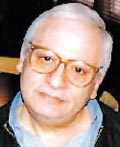Father’s death troubles brothers
When Edward "Tiger" Monsour's family left him in the care of a Las Vegas nursing home in 2005 to recover from a fall, they thought he would rehabilitate, return home and re-establish himself as the family's patriarch.
But nearly a year later, Monsour left Manor Health Care Center, 8501 Del Webb Blvd., in far worse shape than when he arrived, his four sons say.
In April 2006, Monsour was wheeled out of the facility, wearing a diaper and suffering from bedsores and a large ulcer on his heel that had blackened from gangrene. He died a few weeks later at 75 of sepsis, a bacterial blood infection.
Brothers Michael, Danny, Edward and Adam Monsour blamed their father's death on the facility. They say there was inadequate supervision, lack of staffing and an untrained wound care nurse who knew nothing about treating ulcers.
They filed a complaint in District Court in 2006, prior to their father's death. Arbitrator Stephen Huffaker found Manor Health Care Center did not perform "up to the standard of care mandated by Skilled Nursing Home rules and regulations" when caring for the elder Monsour.
Huffaker, who has also served as a senior judge in District Court, said the facility violated Nevada law when it "failed to provide adequate care, causing pain and suffering to both the deceased and his family.''
He awarded Monsour's estate $114,431.32 for compensatory damages; $240,000 to his estate and heirs for personal injury, pain and suffering; $200,000 to his sons for loss of companionship and consortium; and $200,000 for attorney fees and costs.
The total comes to just over $754,000.
"They totally neglected our father. He was not getting proper health care," Danny Monsour said.
But motions filed last month by attorneys on behalf of Manor Health Care Center suggest Nevada law doesn't allow Monsour's sons or heirs to recover most of the damages because Huffaker found against the portion of the complaint that claimed wrongful death.
According to Huffaker's ruling, "The evidence showed that Mr. Monsour would have died from the underlying physical ailment, an ischemic pressure ulcer, regardless of quality of care.''
The motion seeks to modify Huffaker's decision as well as reduce the award amount.
Asked to elaborate on the motion, Manor Health Care's Las Vegas attorney said he couldn't comment on "ongoing litigation."
"I think it would be inappropriate,'' Alan Westbrook said.
A hearing is scheduled Sept. 8 to enter the judgment into the court record.
Attorneys for the Monsour family call Manor Health Care's legal actions a tactic to get out of paying the award.
"We could have brought the case before a jury; the defendant came to us and asked if we would agree to binding arbitration,'' said Alan Levine, a Florida attorney representing the Monsours. "We were actually shocked because they basically agreed to give up their right to an appeal. ... They're trying to do whatever they can to negotiate off the number.''
However, he said the amount of the award should send a message to long-term care facilities.
According to the National Center on Elder Abuse, up to 2 million Americans age 65 and older have been injured, exploited or otherwise mistreated by someone on whom they depended for care or protection.
Between July 1, 2006, and June 30, 2007, the Nevada State Division for Aging Services investigated 4,476 cases of elder abuse, the largest percentage of which were reported in Clark County. Abuse can occur within a person's own home, a long-term care facility such as a group or nursing home, or inside a medical care facility. The division's elder abuse reporting system doesn't distinguish abuse cases based on where they occurred.
However, in the past six months, 188 cases have been reported to the agency involving elder abuse in nursing or group homes, said Kay Rogne, elder protective service program manager.
Rogne said the agency plans to start keeping track of reported elder abuse cases in nursing homes.
"There's a pattern of conduct that all of these nursing homes exhibit, and what often happens is these families don't want to get involved with litigation,'' Levine said.
Weeks after Monsour was admitted into Manor Health Care, his sons said they began noticing changes in the type of care he was receiving.
He started out getting three meals a day and seeing a physical therapist to build up strength in his legs, Danny Monsour said. He also got haircuts, laundry service and was able to leave his room on his own.
Within a couple of months, that all changed, the brothers said.
"The physical therapy stopped. His meals stopped. When they did Tiger's laundry, his clothes were lost,'' Danny Monsour said. "We would give him money and it would get stolen. He was losing weight.
"He did not enter Manor needing diapers, but since nobody would take him to the restroom, they started putting diapers on him,'' he said.
At one point, Michael Monsour found his father, an Army veteran, crying one day in his room.
"My dad was never a complainer. He was a strong man,'' Danny Monsour said. "He felt helpless at Manor because his voice was never heard. Our voices were never heard.''
After listening to their father's pleas, the Monsour brothers filed neglect charges under Nevada's elder abuse statute.
The brothers say they are baffled that the facility's attorneys have filed motions to modify Huffaker's judgment.
They say they're not looking to get rich off their father's death and they just want Manor Health Care to take responsibility.
They also want to bring the public's attention to neglect in long-term care facilities.
"You can't just assume a medical facility is safe just because it has been recommended,'' Adam Monsour said. "We had to discover the hard way.
"It wasn't until the last couple of months our father was at Manor that we really started investigating and noticing the negligence.''
Contact reporter Annette Wells at awells@ reviewjournal.com or 702-383-0283.

















